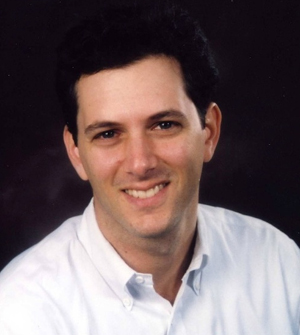Sobel Wins Packard Fellowship
 Prof. Adam Sobel has been chosen as one of the 2000 Packard Fellows for his proposal to understand tropical atmospheric dynamics and global warming through both numerical modeling and theoretical approaches.
Prof. Adam Sobel has been chosen as one of the 2000 Packard Fellows for his proposal to understand tropical atmospheric dynamics and global warming through both numerical modeling and theoretical approaches.
Sobel studies the basic dynamics of the atmosphere and climate, with a particular emphasis on the tropics. He is particularly interested in what controls the distribution of rainfall in space and time, the mechanisms by which cloud and precipitation processes interact with large-scale fluid dynamics on a rotating planet, and overall what controls the mean structure and variability of the atmospheric circulation.
Packard Foundation Awards $15 Million to Promising Young Scientific Researchers; 2000 Packard Fellowships in Science and Engineering
LOS ALTOS, Calif.--(BUSINESS WIRE)--Oct. 25, 2000
Twenty-four of the most promising science and engineering researchers at 22 universities across the United States have been awarded five-year fellowships worth $625,000 each from the David and Lucile Packard Foundation. Now in its thirteenth year, the Packard Fellowships Program provides 24 new faculty members with $125,000 per year over five years to support their scientific research. It is one of the nation's largest non-governmental programs of unrestricted grants to young university faculty in science and engineering. From the study of galaxies, the earth, and its atmosphere, to cell biology, to nanotechnology and materials design, to theoretical mathematics and physics, the Fellows' research covers a multitude of disciplines in science and engineering. "The unrestricted nature of the fellowship, along with the commitment of funding for five years, will enable the Fellows to pursue lines of inquiry that might be too risky for standard funding mechanisms," said Lynn Orr, dean of earth sciences at Stanford University and chairman of the advisory panel that selects fellowship recipients. "This approach reflects David Packard's style of operation: find talented people and give them the resources they need to do top quality work, along with the responsibility to determine how best to use those resources."
Since 1988, the Foundation has awarded fellowships totaling $155 million to 272 faculty members at 50 universities in the United States. The fellowships were established to develop future scientific leaders, to further the work of promising young scientists and engineers, to encourage networking among these researchers, and to support efforts to attract talented graduate students into university research in the United States.
"This new group of Packard Fellows represents an investment in talented young faculty," added Orr. "Their research will benefit society in the decades to come, and the students who work with them will make contributions that will multiply the value of the research effort many times over."
The 2000 Fellows were nominated by their university presidents and recommended by a panel of nationally recognized scientists and engineers. Fellows were selected this year from universities in the following states: California, Connecticut, Georgia, Illinois, Maryland, Massachusetts, Michigan, Minnesota, New Jersey, New York, North Carolina, Pennsylvania, Texas, and Washington.
The David and Lucile Packard Foundation is a private family foundation created in 1964 by David Packard (1912-1996), co-founder of the Hewlett-Packard Company and Lucile Salter Packard (1914-1987). The Foundation provides grants to nonprofit organizations in the following broad program areas: conservation; population; science; children, families, and communities; arts; and organizational effectiveness and philanthropy. The Foundation makes grants at the national and international level, and also has a special focus on the Northern California counties of San Mateo, Santa Clara, Santa Cruz, and Monterey. The Foundation's assets were approxi-mately $14 billion as of July 31, 2000. Grant awards totaled approximately $411 million in 1999, and the Foundation expects to make grants of approximately $500 million in 2000.
